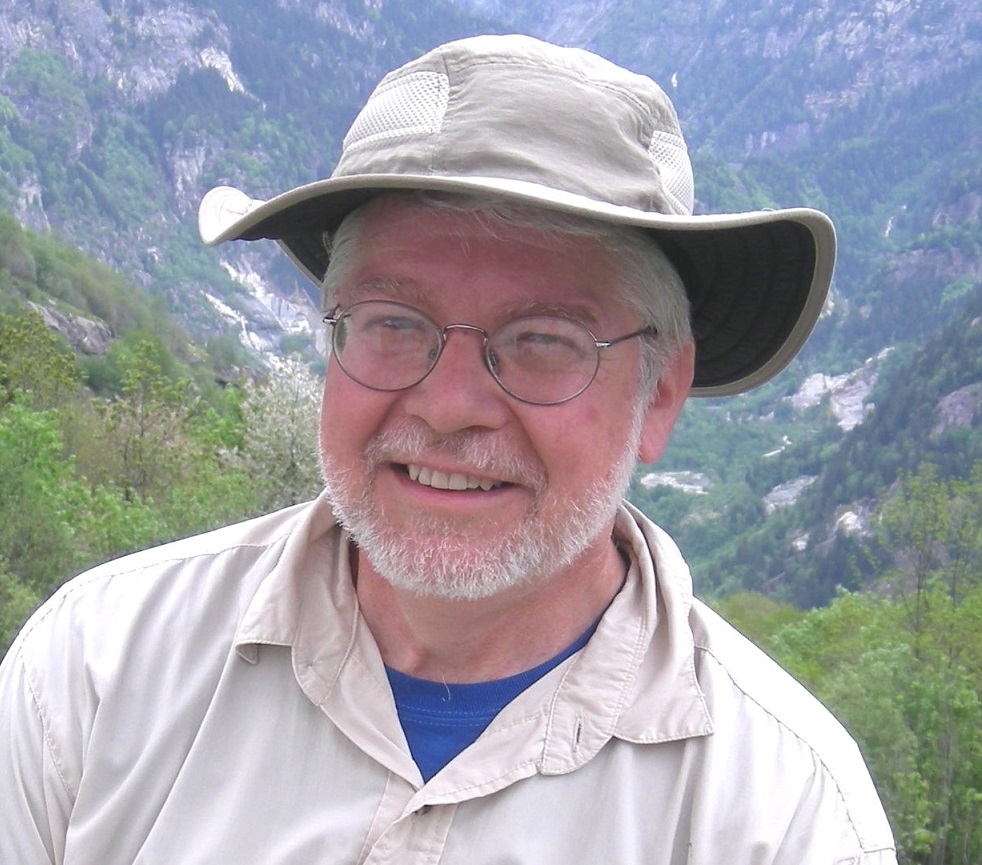BY RODGER M. PAYNE
A few years ago I began offering a first-year colloquium at UNC Asheville titled “World Religions in Asheville.” I wanted to help students learn a little bit about their community while introducing them to the study of religion as an academic subject. Besides hosting guest speakers and engaging in lively classroom discussions, we visited a number of local religious communities — including the Islamic Center, Beth Israel Synagogue, the Western North Carolina Baha’i Center, Mother Grove Goddess Temple and Great Tree Zen Temple — during a regularly scheduled service or ceremony. But while the student evaluations were quite favorable, it quickly became apparent to me that, as with all new courses, this one would need some tweaking before I taught it again.
First of all, framing our subject matter as “world” religions suggested that what we were examining was some sort of religious Other — something foreign and perhaps a bit exotic — which was the exact opposite of my intentions. The Muslims, Jews, Baha’is, Wiccans and Buddhists whom we met were certainly not “outsiders”: We were all members of the same community.
Secondly, by limiting the students’ exposure to these groups’ regularly scheduled devotional activities, the course inadvertently reinforced the idea that religion is something people carry “between their ears,” a set of beliefs that might be outwardly expressed only within a specifically defined context. Religion, in other words, is something best done in private, or at least in concert with those who share one’s own beliefs. When religion moves out of such confines, it always seems to do so in some contentious way. These were not the lessons I’d envisioned, however.
So the next time I taught the course, I called it “Religious Diversity in Asheville,” and rather than focusing on the subject’s most formal expressions, we sought religion in less conventional arenas. Thus, we attended the Greek Festival, ate moussaka and baklava, learned about the art and architecture of Holy Trinity Greek Orthodox Church, and considered the ways in which religion might help create and sustain cultural identity.
Food was also an important component of our visit to the HardLox Jewish Food and Heritage Festival, where students discovered such delicacies as kugel, rugelach and, in at least one case, pastrami. At the various booths, students explored the many different ways of being Jewish in Asheville, from Hasidic to Conservative to Reform to secular. A visit to the sparsely decorated “zendo” (meditation hall) at the Windhorse Zen Community contrasted sharply with the colorful shrines and images in the temple room at Urban Dharma, suggesting that, as with Judaism, many forms of Buddhism were alive and well in the Asheville area.
Both in and out of class, students heard from representatives of these different communities — Orthodox Christian priests, Jewish rabbis, Wiccan priestesses and a Muslim student who spoke about the challenges she’d faced after she began wearing the hijab. The students began to see that religion isn’t simply a set of beliefs whose expression is confined to formal spaces: It takes place all around us, in our everyday lives. For some, it determines what they eat or refrain from eating, or what type of clothing they wear. It reinforces various kinds of identity.
The most significant change in the course, though, was shifting our approach to the study of religion from “difference” to “diversity.” Instead of “othering” the religions we studied, diversity allowed us to examine the societal benefits — and inevitable tensions — created by the public presence of multiple religions. Differences between and even within religions are the products of their own varied histories; diversity is the deliberate byproduct of a free society. Differences might be merely “tolerated,” but in a democratic society, diversity must be embraced and even celebrated. Differences might even be ignored, as long as they’re kept in their “proper” place: behind the walls of a temple, church, mosque or synagogue. Diversity, on the other hand, may confront us in grocery store aisles, in restaurants or when strolling downtown.
Growing numbers of Americans — including about a quarter of the millennials now entering college — claim no religious affiliation. But even for these religious “nones,” as the Pew Research Center terms them, the increasing multiplicity of religions in the United States means that questions about the role of religion in the public square will only grow more acute. And while a single semester is hardly enough time to consider — much less answer — those questions, Asheville certainly offers us a wonderful starting point.
Professor Rodger Payne is the chair of UNC Asheville’s Department of Religious Studies.




Before you comment
The comments section is here to provide a platform for civil dialogue on the issues we face together as a local community. Xpress is committed to offering this platform for all voices, but when the tone of the discussion gets nasty or strays off topic, we believe many people choose not to participate. Xpress editors are determined to moderate comments to ensure a constructive interchange is maintained. All comments judged not to be in keeping with the spirit of civil discourse will be removed and repeat violators will be banned. See here for our terms of service. Thank you for being part of this effort to promote respectful discussion.